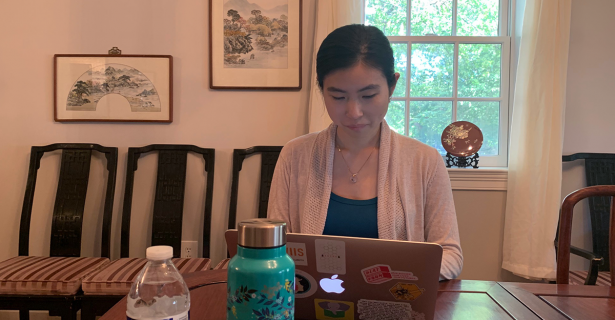Over the past few years, it would not be an exaggeration to say that I have pined over the Oslo Scholars Program. It was the commitment to human rights, the possibility of attending and if not, supporting an activist that is a part of the Human Rights Forum, and the array of human rights issues that the organizations tackled and the impact they had that drew me to this program. In my third summer, I am fortunate to be serving as an intern for Dr. Jamila Raqib with the Albert Einstein Institution based in Boston. Focused on carrying forward the legacy of non-violence movements passed down from Dr. Gene Sharp, this internship is allowing me to grow in my knowledge of non-violence movements’ history around the globe and passing forward lessons learned to present and future organizers. It was clear, even during the interview stage, that Raqib cares deeply about her work and the interns’ growth, and I was lucky to be able to share my passion for women’s empowerment work. I look forward to the rest of the summer and to being able to invest energy in advancing non-violence movements for important human rights causes as well as for a specific cause close to my heart.
To kickstart this internship, I have been reading through Sharp’s book From Dictatorship to Democracy: A Conceptual Framework for Liberation. Here, Sharp opens the book with various interactions he has had with those experiencing oppressive regimes. Striking to me was when he discussed the oppression those living under communist regimes experienced, as this was something I was recently exposed to in direct ways that I had not been before.
This past semester, I was studying abroad in Paris. While the semester was cut short due to the pandemic, during the short span of two months I was in Europe, I had the opportunity to visit Prague, Budapest, and Munich for the first time. In Munich, I was able to take a day to visit a former concentration camp used by the Nazis during World War II. When in Prague, we made our way to a communist museum. This experience proved so enriching that I sought out the communist history tour in Budapest and finished off my last full day there with hours devoted to the communist museum in Budapest. On the communist history tour, the tour guide joked that we should check out the Hungarian “communist pizza,” lángos, which is known as such as it is considered to be similar to pizza but with less fanfare.
Unexpectedly, this trip provided my entryway into learning the details of oppression that those living in central Europe experienced during World War II only to be succeeded by another kind of reign of terror. Fearing prosecution by the state for saying, buying, reading the wrong thing, fearing neighbors as potential informants… the list of damage that various kinds of dictatorships and authoritarian rule have caused goes on. That is why efforts to prevent tyranny are important, and disintegrating dictatorships is the goal of this book and the organization at large.
This summer, I am thrilled to have this opportunity to delve into methodology, to the how-to of such an important effort in support of Dr. Raqib and the Albert Einstein Institution.

